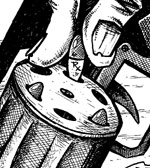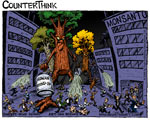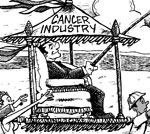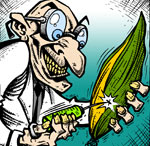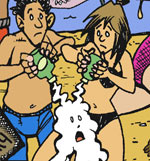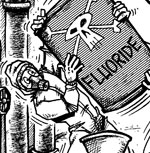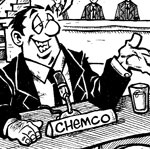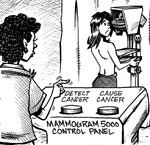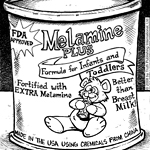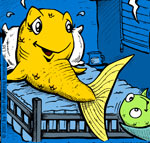Lysine For Herpes - Changes in Diet and Nutritional Supplements that May Prevent Herpes Outbreaks
| Share on Facebook | Share on Twitter | Share on Google+ |
Two amino acids, lysine and arginine, have a great deal to do with herpes outbreaks. Arginine should be avoided, and lysine should be added.
Arginine is the amino acid the herpesvirus uses to break out of the cellular "prison" to which it is confined between outbreaks, and lysine "jams the door" the virus needs to open to break out of its cell.
How Herpes Breaks Out
After the initial infection, the herpesvirus retreats to nerve cells just below the skin. The virus "hibernates" in nerve cells until something wakes it up.
There might be a physical injury to the nerve, or there might be an infection caused by some other microorganism, or there might be general emotional stress.
When the virus is "threatened" it replicates itself and begins to break down the cell so it can move to the surface of the body and escape to cause infection in someone else.
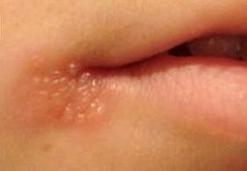
Before the herpesvirus can break out of a cell, it needs to dissolve the membrane in which it is hiding.
To form a vesicle, or a hole in the cell, the virus needs to make an enzyme from arginine. If there are large amount of lysine in the vicinity of the virus, however, it will make a defective enzyme that won't dissolve the cell to allow it to escape.
Using Lysine to Prevent Herpes Outbreaks
Taking lysine supplements helps prevent herpes outbreaks, but taking just a little lysine won't do any good.
One study conducted in the 1980's found that taking just 1200 mg of lysine a day did not reduce the frequency of herpes breakouts.
Another study found that taking 3000 mg of lysine, and reducing consumption of arginine-rich foods, reduced the frequency of herpes breakouts by 25%.
But even there are still recurrent outbreaks of herpes, the severity of symptoms can be greatly reduced when people who have herpes take lysine.
A study published in the Journal of Antimicrobial Chemotherapy in 1983 reported that 79% of herpes patients reported that their symptoms were "intolerable" or "severe" without lysine, but only 8% reported that there symptoms were intolerable or severe with lysine.
Without lysine, 90% of herpes sufferers said healing sores took 15 days or more, but with lysine, 83% said healing sores took 5 days or less.
Lysine does a good job of preventing the severity of herpes symptoms, even though it won't completely stop more outbreaks.
How to Use Lysine to Prevent Herpes
Taking up to 3 grams of lysine a day usually has no side effects. Taking 12 to 20 grams of lysine a day or more can cause digestive upset, but that's more than is needed.
As little as 500 mg a day may reduce the severity of symptoms, but it generally takes 3 capsules a day or more to prevent at least some outbreaks.
It also helps to avoid foods that are high in arginine, the amino acid that helps the herpes virus break out of the cells where it lives between outbreaks.
Typically, herpes sufferers are told to avoid chocolate, nuts, and Jell-O, but these are not the foods that are highest in arginine.
Soy protein isolates, shrimp, mussels, spinach, spirulina, turkey, ostrich, moose, elk, cabrito (goat), and chicken all contain more arginine than chocolate, nuts, and gelatin.
If you consume just a serving of spinach or a teaspoon of spirulina, you are not likely to get enough arginine to cause problems, but all of the protein foods on this list can trigger outbreaks, and are more likely to cause outbreaks than chocolate or nuts.
Frequently Asked Questions
Q. Is lysine just for genital herpes, or would it also help with herpes zoster and shingles?
A. Lysine helps reduce symptoms of all forms of herpesvirus infections, although shingles are, it is to be hoped, are a one-time thing.
Q. Are there any foods that are high in lysine?
A. Yes. It may help to eat foods that are high in lysine, but not high in arginine. These foods include yogurt, low-fat milk, cellophane noodles (jap-jae), and soy milk instead of the high-protein foods mentioned earlier in this article.
-
Skin CareMen Skin Care
-
Free ResourcesFree eBooks
-
Every human being is the author of his own health or disease.Buddha
-
What We RecommendIf you do an analysis of the ingredients in a bottle of
 Total Balance and compare with other products you will find that it provides exceptional value for money…even against simple mass produced products with lower bottle costs.
Total Balance and compare with other products you will find that it provides exceptional value for money…even against simple mass produced products with lower bottle costs.
-
